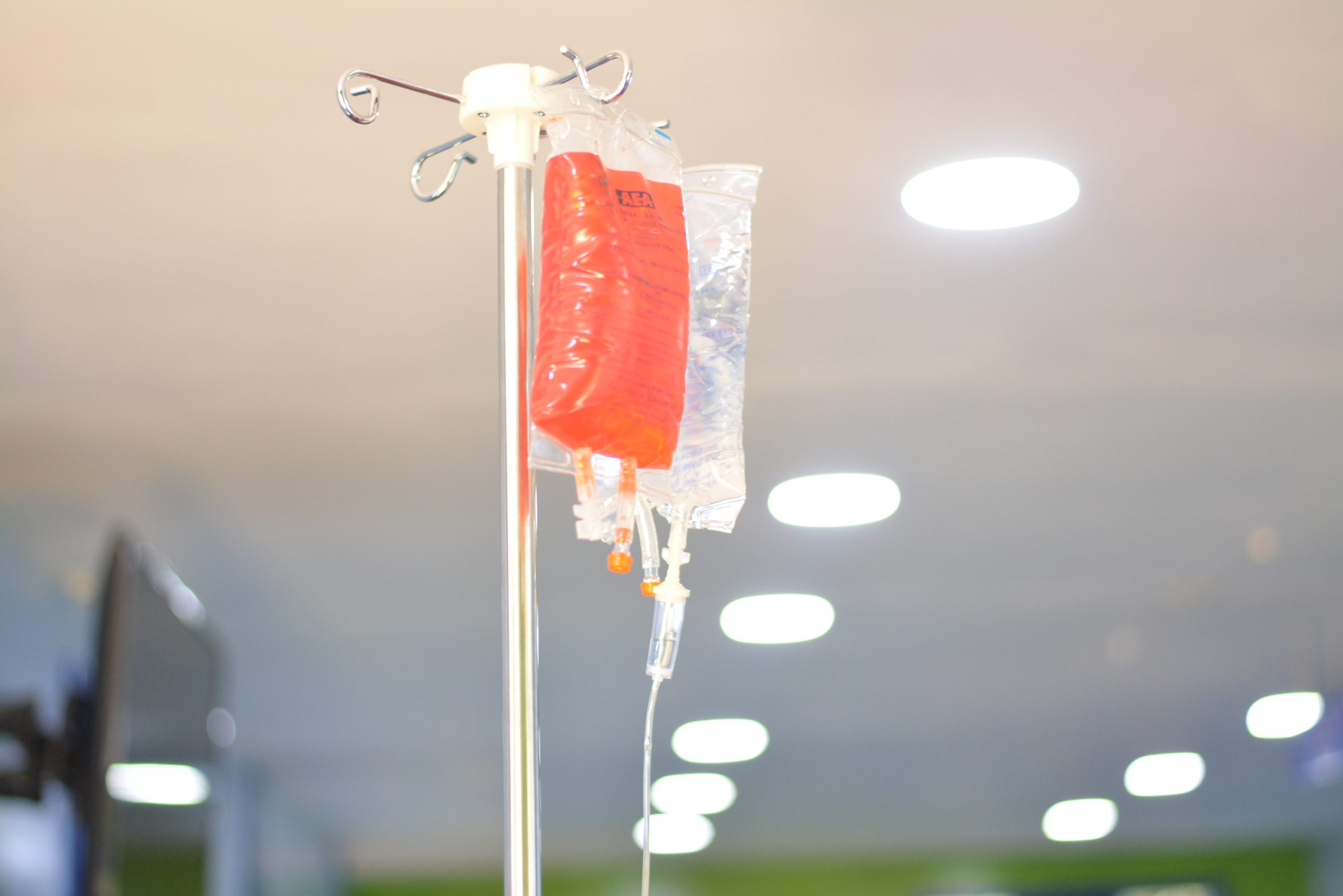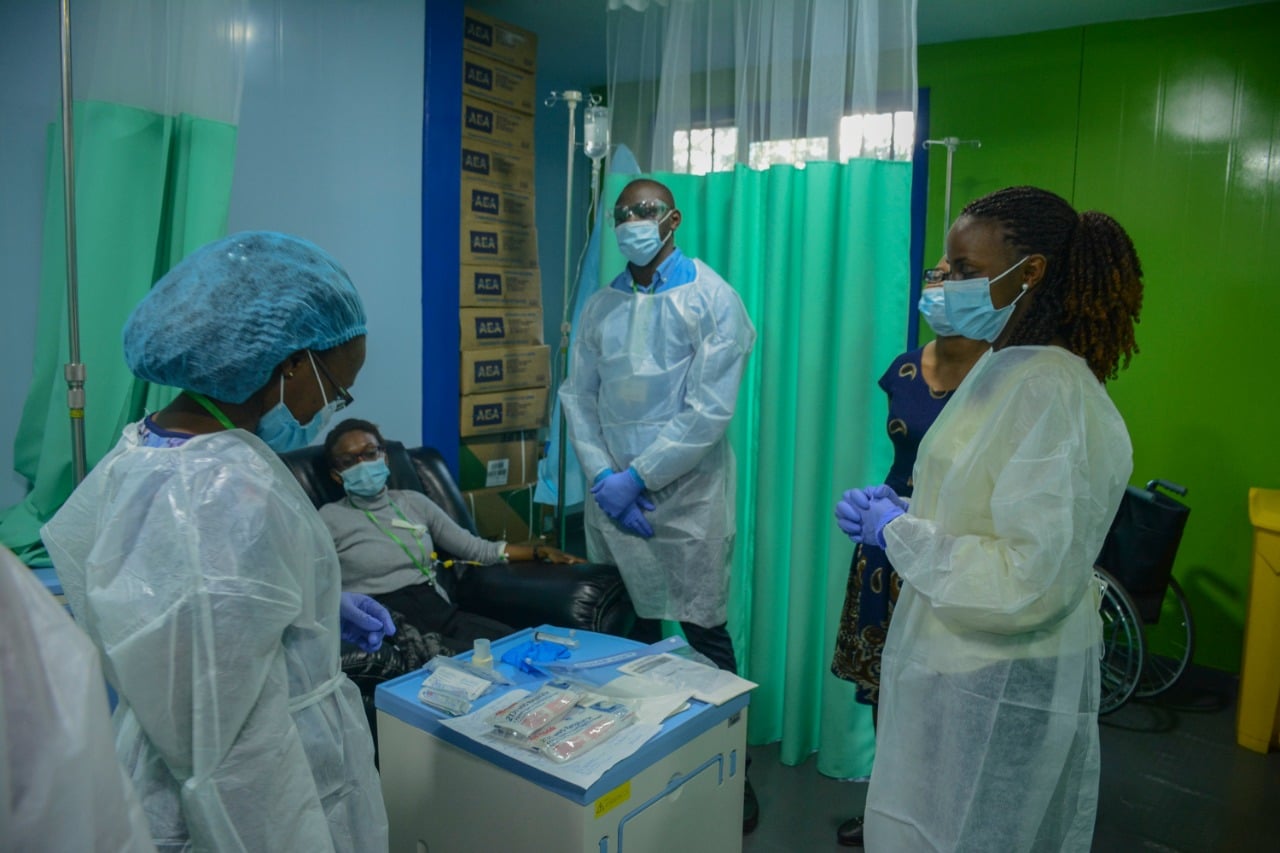Chemotherapy at International Cancer Institute

Chemotherapy is a cancer treatment that uses drugs/medicines to kill cancer cells. Cancer cells grow and multiply faster than normal body cells, making chemotherapy effective for most cancers.
There are many chemotherapy drugs. However, they all work on the same principle. These drugs can be used in isolation or combined with others to treat different types of cancers.
When will your doctor recommend chemotherapy?
Chemotherapy is often used for cancer treatment when the cancer has spread or is likely to spread. The following are some of the most common use cases for chemotherapy:
- Curing cancer completely
- Supplement other treatment options for example radiotherapy (chemoradiation) or before surgery (neoadjuvant chemotherapy)
- Remove remaining cancer cells after other treatment options like chemotherapy (adjuvant chemotherapy)
- Ease pain and symptoms when the cancer is not responding well to all treatments (palliative chemotherapy
Chemotherapy treatment varies from case to case. Your doctor will advise on the best chances for your specific case.
How do doctors determine your chemotherapy treatment plan?

Specialist doctors, called oncologists, are specially trained to treat and care for cancer patients. Such a doctor will sit down with you and plan your cancer care. The doctor may recommend more than one chemotherapy drug for your treatment plan.
Some of the considerations a doctor takes when planning chemotherapy care may include,
- The type and stage of the cancer
- Your age and general well-being
- Your weight and height
- Your reaction to all or each of the drugs
- Past cancer treatments
- Pre-existing medical conditions
How is chemotherapy administered?
Chemotherapy is administered in hospital settings. However, there are cases where your doctor will give you the medication to take at home. Some of the ways in which a doctor may prescribe chemo include:
- Orally through tablets, capsules, or liquid. If a doctor prescribes this method to you, you can take it at home. Ask your doctor how to store these medications safely in your house.
- Direct injection to your vein (Intravenous). This method takes a few minutes to a few hours depending on the treatment plan.
- Injections or shots either to specific muscles or under the skin. The injections are usually given on the arm, leg, or abdomen.
- Topical applications on your skin as a cream. You can apply this type of chemotherapy at home.
- Inside your abdomen or peritoneum. Peritoneum is the area inside the abdomen and the surrounding internal organs such as the liver, intestines, and stomach. This method is mostly used in ovarian cancer.
- Directly into an artery (Intra-arterial). Since an artery carries blood from your heart to different parts of your body, a chemotherapy injection to an artery can take the drugs directly to cancer.
Our highly specialized oncologists will discuss with you the best administration for your specific cancer.
How long does chemotherapy treatment take?

Cancer drugs have severe side effects. For this reason, cancer treatments are spaced to give time for your healthy cells to heal and restore. If you have a chemo session today, you may get the next dose after several days. Each break is called a cycle. Several cycles are referred to as a course of chemotherapy. A course takes 3 or more months to complete.
A few cancers require small breaks between chemo doses known as dense-dose chemotherapy to effectively fight cancer cells. Don’t be scared if you notice you get a small break between your chemo sessions. It is perfectly normal for some cancers.
What side effects can I expect with chemotherapy?
Chemotherapy works by killing cancer cells in your body. However, a few healthy non-cancer cells also get affected in the process. These cells may include blood cells, skin cells, or other cells in the body. As a result, there are some side effects you can expect when getting chemo treatment. These include:
- Loss of hair
- Sore mouth
- Constipation or diarrhea
- Fatigue
- Nausea or vomiting
- Reduced blood counts e.g HB, Neutrophils
Talk to your doctor if you receive any of these symptoms as they can be prevented or treated in most cases. The symptoms will go away after the treatment.
Is chemotherapy used only for cancers?
Although chemotherapy is used for cancer cases, it can treat other conditions such as bone marrow diseases and immune system disorders.
Bone marrow transplant treats diseases affecting the bone marrow or white blood cells. Chemotherapies may be used to prepare for bone marrow transplants.
Chemotherapy can be used in low doses to control an overactive immune system in diseases like rheumatoid arthritis and lupus.
Your doctor will advise on whether you can get chemotherapy for treating conditions other than cancer.
Chemotherapy treatment at International Cancer Institute

At the International Cancer Institute, we take advantage of the most current and effective chemotherapy drugs in the care of our cancer patients. Our team of oncology caregivers and specialists plan cancer care case-by-case considering all the conditions that are favorable to the patient.
Need more than chemotherapy? Talk to us today to help you get the best care for your cancer
Opening Hours
| Monday – Friday | 8.00 – 17.00 |
| Weekends | Closed |
| Holidays | Closed |
Quick Contacts
- Address P.O. Box 8088-30100, Nandi Rd., Eldoret
- Email info@intercancer.com
- Phone +254 718 473 446





